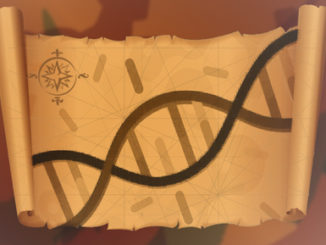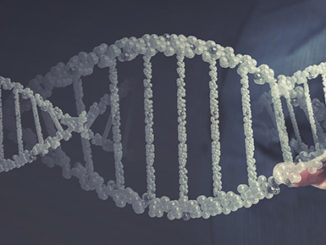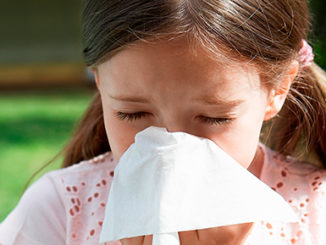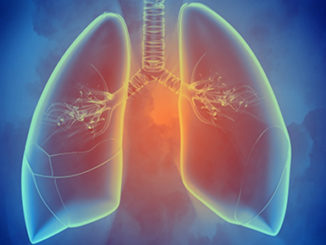Articles that explore the connection between epigenetics and diseases and disorders, including cancer, cardiovascular disease, diabetes, autoimmune disease, and more.
For decades, farmers and homeowners alike have been eradicating unwanted weeds and vegetation with Roundup. While it’s been an effective herbicide and widely used in the US, its main ingredient has been causing much debate in recent years with claims linking its use to cancer and other conditions. Now, scientists are finding that exposure to this weed killer could also be responsible for damaging the health of future generations via inherited epigenetic defects. Glyphosate, or N-(phosphonomethyl) glycine was first discovered [more…]
Thirty years ago, many scientists believed that mapping the human genome would be the key to ending all diseases. We now know that genetics is more complicated than we first anticipated. This understanding has steered many researchers to look beyond the genome to study what lies “on top” of the DNA, better known as epigenetics. However, this field is very new and mostly uncharted, and despite overwhelming interest, there is still much to learn. The primary challenge at present is [more…]
Menstruation is a normal and natural part of human life. In most cases, it signifies a healthy reproductive system and a women’s ability to bear children. For far too long, however, it has been viewed in a negative light and not always appreciated for its real purpose, which is preparing the female body for pregnancy. Hopefully, science will finally change the overall perspective on menstruation as newer reports are confirming that menstrual blood and tissue are valuable resources of mesenchymal [more…]
Amyotrophic lateral sclerosis (ALS), perhaps more commonly known as Lou Gehrig’s disease, is a devastating neurological disease that ultimately leads to death. This disease eats away at nerve cells, causing death to the motor neurons in the brain and spinal cord, resulting in the loss of muscle function and eventual paralysis and respiratory failure. ALS occurs in 2 main types: Sporadic and Familial. Sporadic ALS is the most common form, and it occurs in individuals in their late 50’s/early 60’s [more…]
Due to its widespread impact across various developed countries and cultures, cancer has been the focus of an ever-increasing number of studies worldwide. What makes these studies difficult, however, is the complicated nature of how cells become cancerous and/or malignant, and further is the overwhelming amount of diversity of the kinds of diseases that all fall under the umbrella of “cancer.” Scientists have made headway in studying the various genetic mutations that occur in cancer cells which make them behave [more…]
Sleep deprivation is quite common among students and working adults. Unfortunately, it causes changes in mood, attention, metabolism, immune system, hormones and much more. If sleep deprivation continues for years, it is very likely to cause mental illness or a body disease. These long-term sleep loss problems are usually linked to changes in gene activity and expression. Does your behavior influence your genes? It does, but it is not only your behavior – development (in children and adolescents), aging, diet, [more…]
The number of children diagnosed with asthma and allergies has risen tremendously in the last few decades, partly because of higher awareness. But the jury is still out on determining what exactly is driving this increase. Rapid changes in the environment and lifestyles factors may be to blame, yet much remains to be learned about the etiology of both these ailments. To further our understanding, scientists have been investigating the role of epigenetics to determine which biological mechanisms play a role [more…]
As we get older, our bodies begin to wear out and lose the ability to function as well as they once did. We start to ache for no reason, our hearing isn’t as adequate as it once was, and we become forgetful. Eyesight is usually one of the first casualties of aging. While most people will experience a deficiency in near focusing or presbyopia as they age, a common cause of gradual vision loss can be attributed to a disorder [more…]
Breathing can be difficult for millions of people around the world who have COPD. While there are available treatments that can reduce the symptoms of this condition, one major barrier to their effectiveness is corticosteroid resistance. The mechanisms that contribute to this type of resistance are unknown, but recent evidence suggests that certain epigenetic factors may play a role. COPD (or chronic obstructive pulmonary disease) is a term used to describe progressive lung diseases including chronic bronchitis and emphysema. Long-term [more…]
Alcohol is likely the most used and abused substance in the world. It’s fine to have a few cocktails or beers per week, but only for those that are of the legal drinking age. Underage drinking is a consistent issue faced in the United States today. According to the CDC, kids ages 12-20 consume about 11% of all alcohol in the US, and this can be problematic as it is often done in a bingeing manner, rather than a causal [more…]











